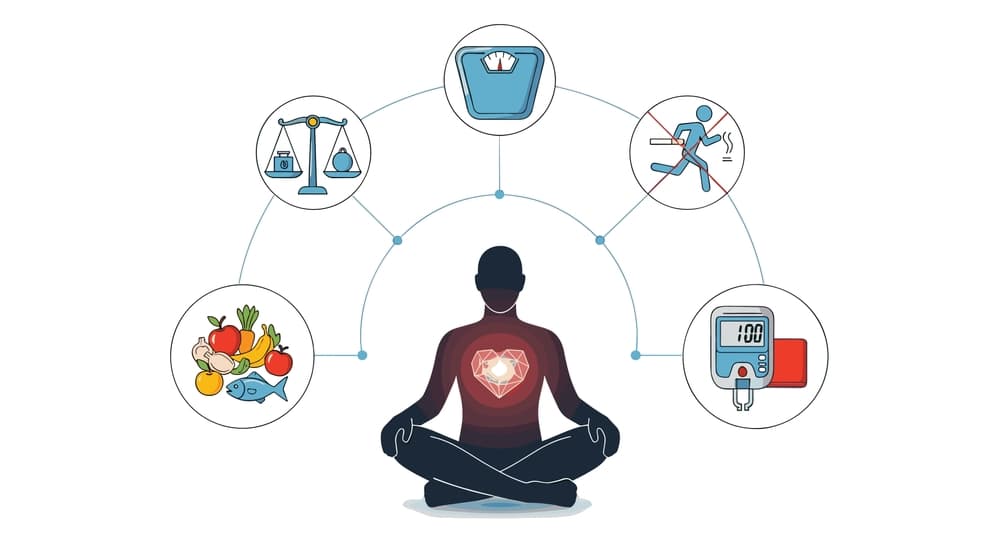How to stop emotional eating and lose weight naturally
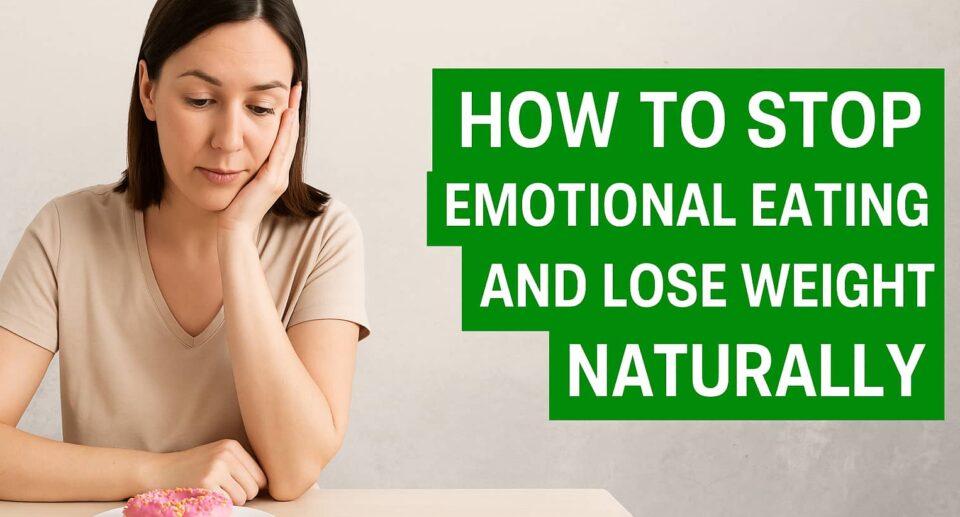

Breaking the Cycle of Emotional Eating
Many people want to lose weight but struggle because food becomes more than just fuel it turns into a way to cope with emotions. Stress, boredom, sadness, or even happiness can trigger the urge to eat, even when the body is not truly hungry. This is what we call emotional eating, and it often leads to guilt, frustration, and unwanted weight gain.
The good news is that emotional eating is not a permanent condition. By understanding why it happens and taking small, consistent steps, you can break the cycle and rebuild a healthier relationship with food. Learning to manage emotions in positive ways not only supports natural weight loss but also helps you feel more balanced, confident, and in control of your life.
In the sections ahead, we will explore what emotional eating really is, why it happens, and how to stop it with practical strategies. These steps will guide you toward a more mindful approach to eating and a sustainable path to weight loss without extreme diets or unhealthy shortcuts.
What is Emotional Eating?
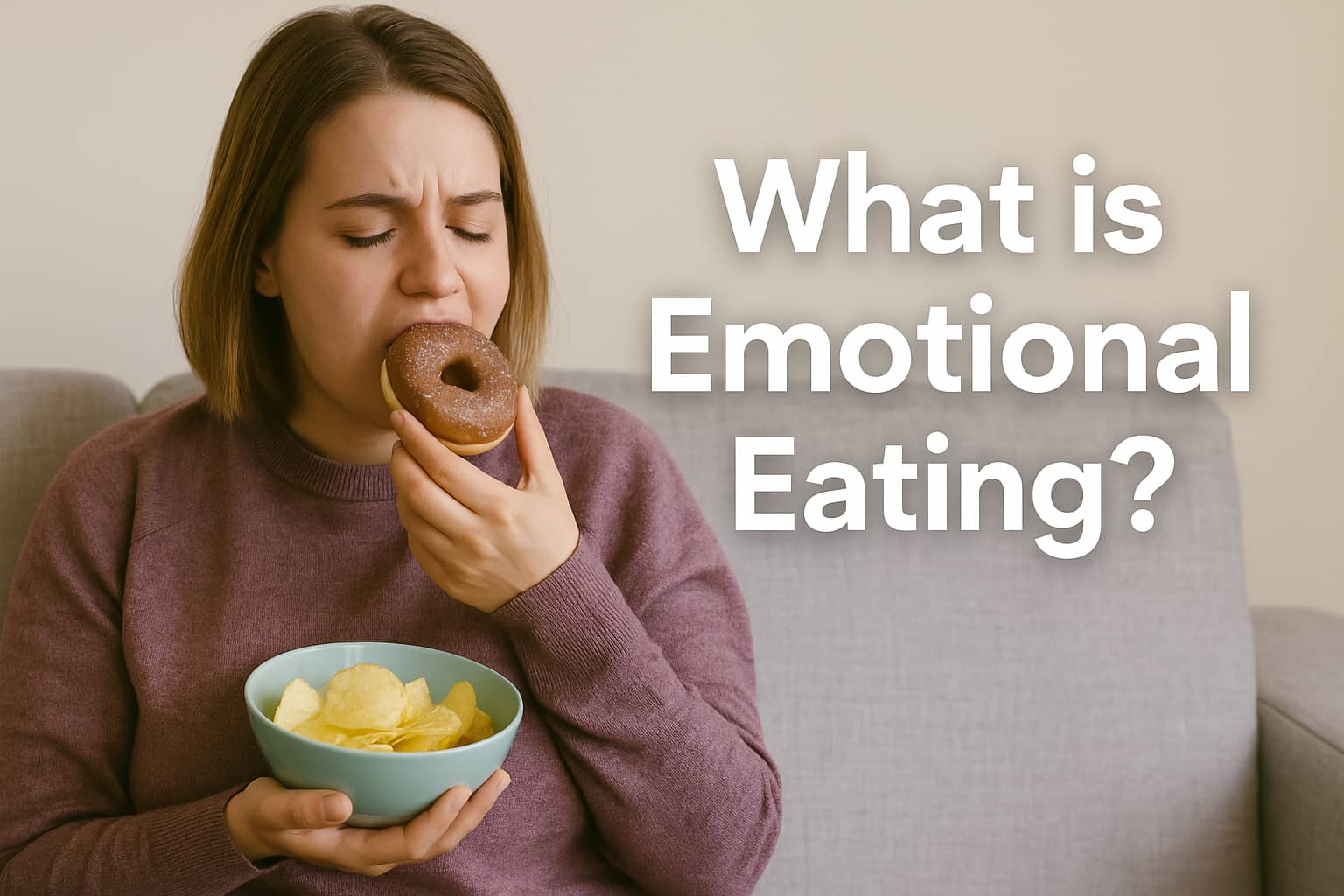

Emotional eating happens when you use food to manage feelings rather than to satisfy physical hunger. Instead of eating because your body needs energy, you eat because you are stressed, lonely, bored, or even celebrating. Unlike true hunger, which develops gradually and can be satisfied with almost any type of food, emotional hunger often comes suddenly and usually involves cravings for specific comfort foods like sweets, fried snacks, or fast food.
A key difference between physical and emotional hunger is how you feel afterward. When you eat to fuel your body, you typically feel satisfied. But when you eat to soothe emotions, the relief is temporary, and it is often followed by guilt, regret, or frustration. Over time, this pattern can lead to weight gain, low self-esteem, and a sense of being “out of control” with food.
Understanding emotional eating is the first step in stopping it. By recognizing when you are eating for comfort rather than nourishment, you can start creating new coping strategies that don’t depend on food.
Why We Turn to Food for Comfort
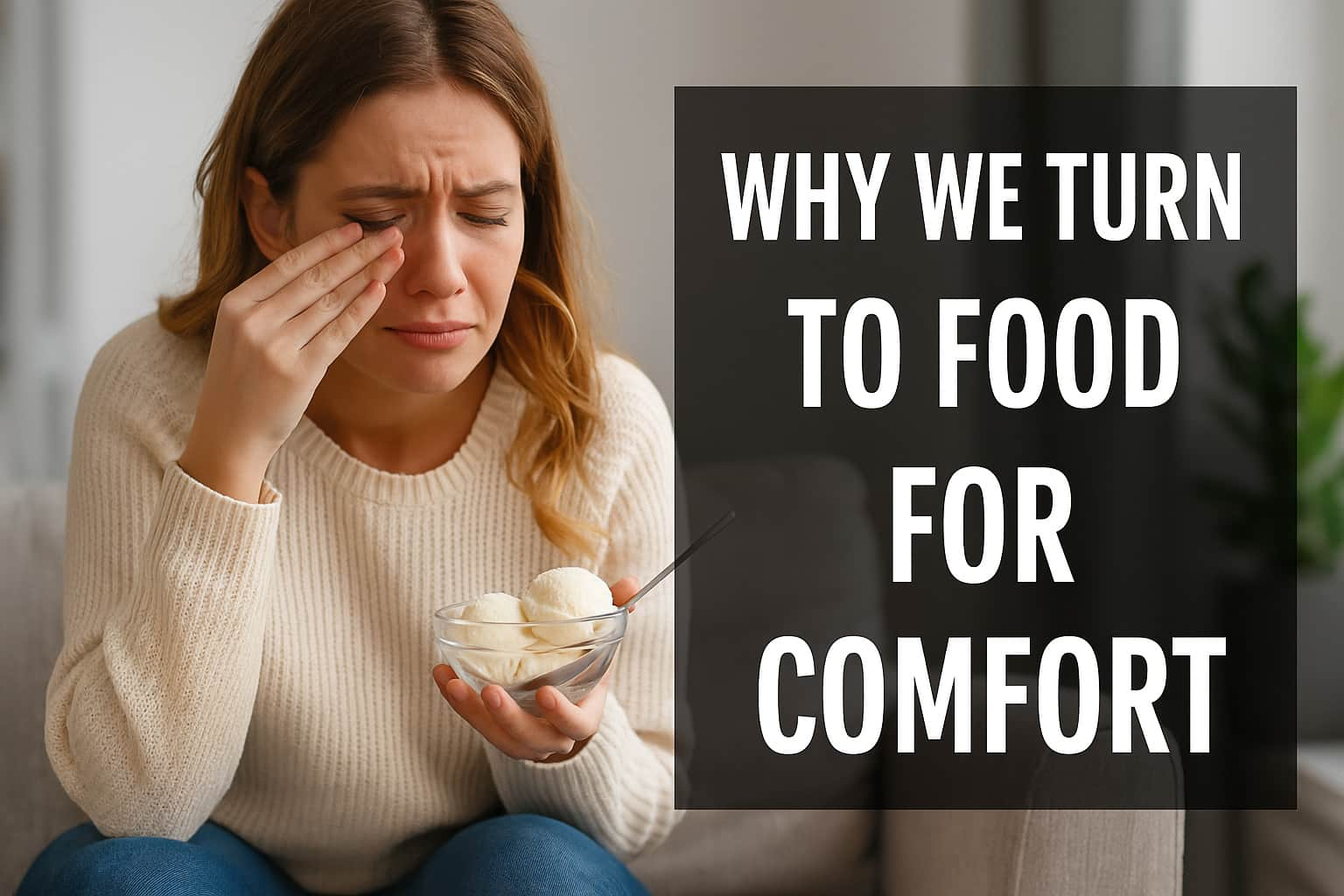

Food is more than nutrition it’s tied to memories, culture, and emotions. From childhood, many people are taught to associate food with comfort or reward. For example, parents may offer sweets when a child is upset, or families may celebrate with large meals. These experiences create a lasting connection between emotions and eating.
On a biological level, eating certain foods, especially those high in sugar and fat, triggers the release of dopamine, a chemical in the brain that produces feelings of pleasure. This “feel-good” response makes food a quick way to escape stress or sadness, even if only for a short time.
Stress also plays a direct role. When the body is under pressure, it releases cortisol, a hormone that can increase cravings for high-calorie foods. This is why stressful days often end with late-night snacking or fast food cravings.
In addition, emotional eating can become a habit. Each time you turn to food for comfort, your brain reinforces the idea that eating is a solution to emotional discomfort. Over time, this cycle becomes automatic unless you intentionally break it.
Recognizing these triggers whether biological, psychological, or social is the first step toward change. Once you know why you turn to food, you can start replacing that pattern with healthier alternatives.
Signs You May Be Struggling with Emotional Eating
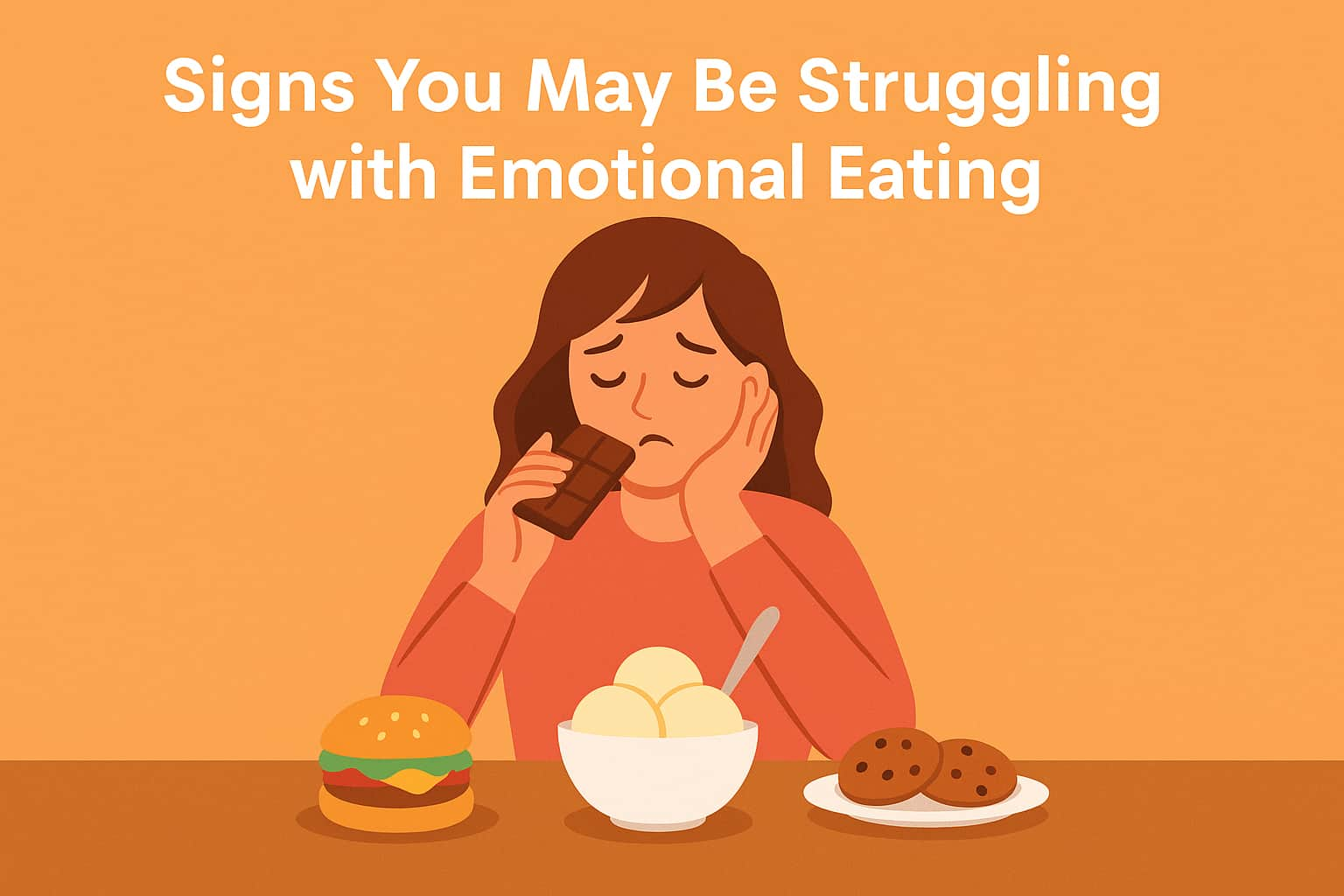

Many people don’t realize they are caught in the cycle of emotional eating until it begins to affect their health or weight. Being aware of the warning signs can help you recognize the problem early and take action. Some of the most common signs include:
1. Sudden, intense cravings
Emotional hunger comes on quickly and feels urgent, while physical hunger develops gradually.
2. Preference for specific comfort foods
When you reach for sweets, fried snacks, or fast food instead of balanced meals, it may be a sign that emotions, not hunger, are driving the choice.
3. Eating beyond fullness
Emotional eating often leads to eating more than your body needs, leaving you overly full or uncomfortable.
4. Eating as a response to stress or boredom
If you find yourself eating when you’re anxious, lonely, or just looking for something to do, food is being used as an emotional outlet.
5. Feeling guilty afterward
Physical hunger usually brings satisfaction, but emotional eating often leads to regret or self-criticism.
If several of these signs feel familiar, it’s a strong indication that emotional eating may be influencing your relationship with food. The good news is that once you recognize these patterns, you can start addressing them with healthier coping strategies.
Practical Strategies to Stop Emotional Eating
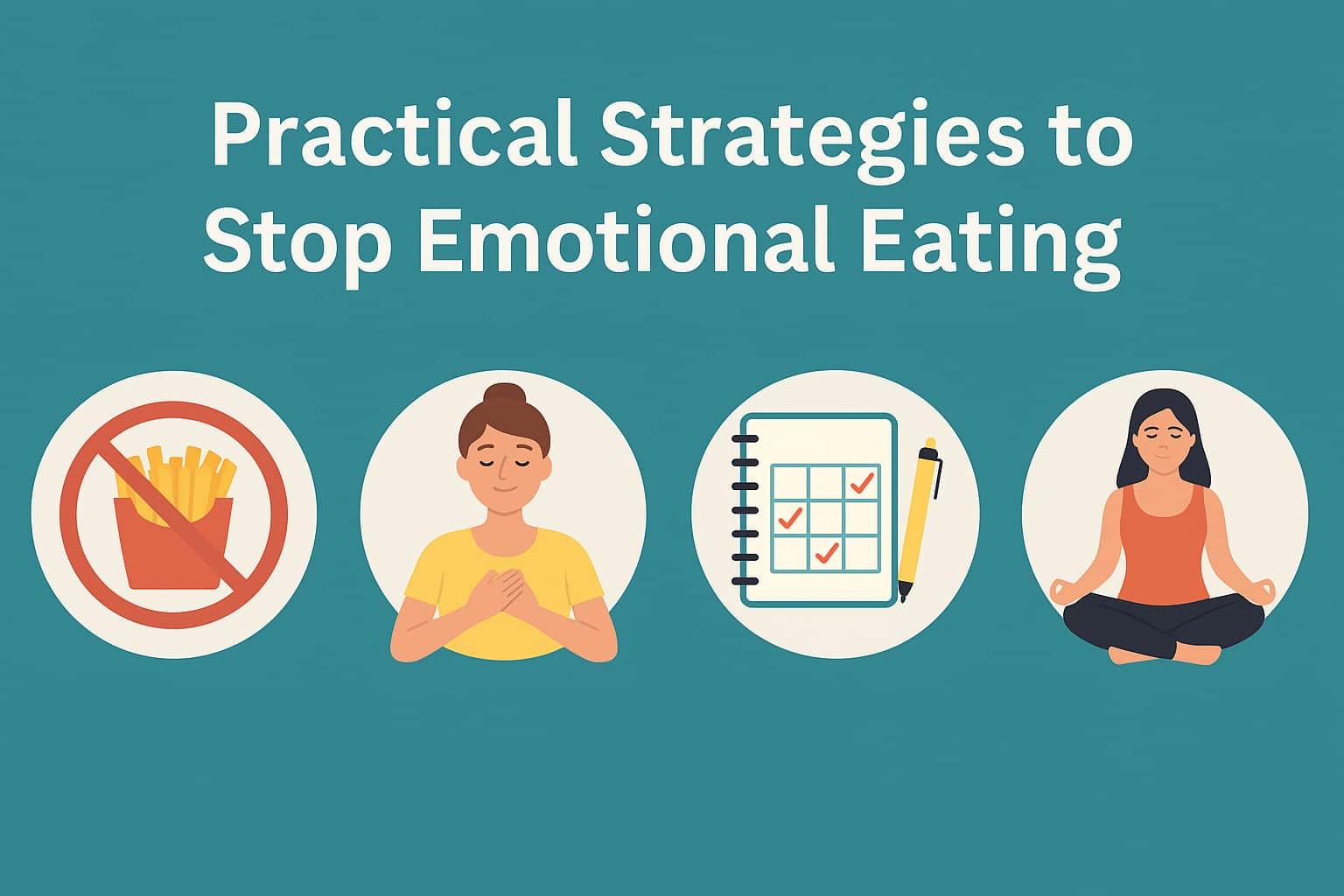

Overcoming emotional eating requires a mix of awareness, self-care, and healthier coping strategies. By identifying triggers and responding differently, you can gradually break the cycle. Here are some effective approaches:
1. Practice mindful eating
Slow down when you eat. Notice the taste, texture, and smell of your food. This helps you distinguish between true hunger and emotional cravings.
2. Identify your triggers
Keep a food and mood journal. Write down when and what you eat, along with how you felt before eating. Over time, you’ll see patterns that reveal whether stress, boredom, or sadness is pushing you toward food.
3. Create healthier coping mechanisms
Instead of reaching for snacks, try alternative ways to deal with emotions:
Go for a short walk to relieve stress
Call a supportive friend or family member
Engage in hobbies like reading, painting, or gardening
Use relaxation techniques such as meditation or deep breathing
4. Plan balanced meals
Eating regularly with the right mix of protein, fiber, and healthy fats can stabilize blood sugar and reduce the likelihood of sudden cravings.
5. Remove temptation
If certain foods trigger binge eating, avoid keeping them in your home. Stock your kitchen with healthier options like fruits, nuts, and yogurt.
6. Seek support
Talking to a counselor, nutritionist, or support group can make a big difference. Emotional eating is often linked to deeper issues, and professional guidance provides tools to manage them effectively.
📌 For additional strategies, you may want to explore Harvard Health Publishing’s guide on emotional eating, which offers evidence-based approaches to overcoming this habit.
Nutrition Tips to Support Natural Weight Loss
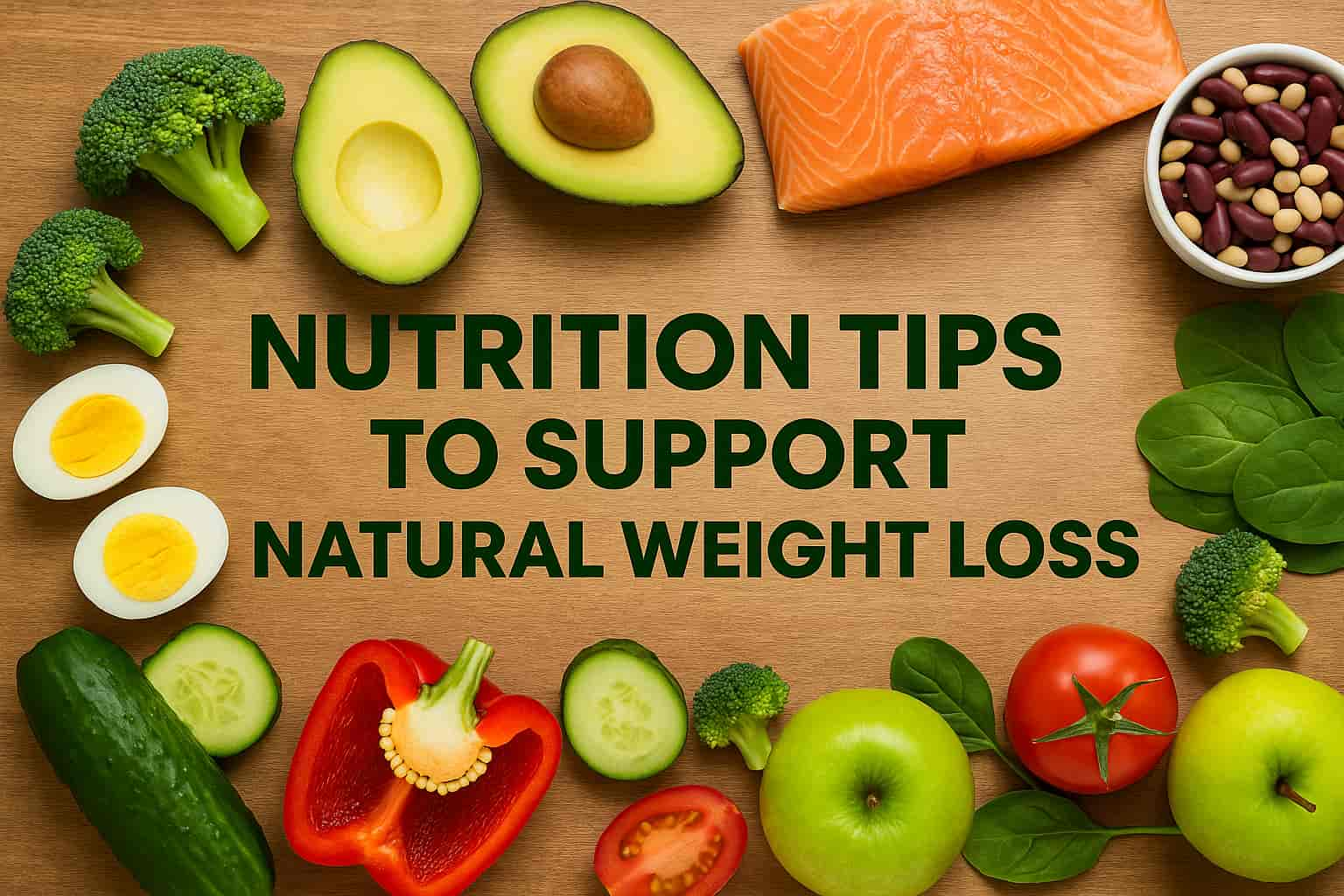

Stopping emotional eating is only half the journey. To lose weight naturally and keep it off, you need a nutrition plan that supports your body without feeling restrictive. The goal is balance, not deprivation.
1. Focus on whole foods
Build meals around vegetables, fruits, lean proteins, and whole grains. These foods are nutrient-dense and keep you fuller for longer.
2. Eat enough protein
Protein stabilizes blood sugar and reduces cravings. Include sources like eggs, beans, fish, or lean poultry in each meal.
3. Stay hydrated
Many people confuse thirst with hunger. Drinking water throughout the day can help reduce unnecessary snacking.
4. Don’t skip meals
Skipping meals often leads to overeating later. Aim for regular, balanced meals to keep hunger steady and prevent emotional triggers.
5. Choose smart snacks
Instead of chips or sweets, try nuts, Greek yogurt, or fruit. These provide steady energy without the sugar crash.
6. Limit processed foods
Highly processed items often contain added sugars, unhealthy fats, and salt, which can trigger cravings and overeating.
By creating a diet based on whole, nourishing foods, you will naturally reduce emotional eating episodes and support long-term weight loss.
👉 For a structured workout routine to pair with your diet, check out our CoreWellFit guide on Upper Body Workout for Men at Home. Exercise and nutrition together reinforce progress.
Lifestyle Habits That Reinforce Progress
Nutrition plays a major role in overcoming emotional eating, but long-term success also depends on daily habits that support both your physical and emotional well-being. By creating a healthier lifestyle, you make it easier to stay consistent and avoid falling back into old patterns.
1. Prioritize quality sleep
Lack of sleep increases stress hormones like cortisol and intensifies food cravings. Aim for 7–9 hours of restful sleep each night.
2. Manage stress proactively
Build stress-relief practices into your routine. Activities like yoga, deep breathing, or regular walks help reduce the urge to eat for comfort.
3. Stay physically active
Exercise not only supports weight loss but also improves mood and reduces anxiety. Consistency matters more than intensity choose activities you enjoy.
4. Set realistic goals
Avoid extreme diets or unrealistic weight targets. Focus on steady, achievable progress to build confidence and long-term commitment.
5. Limit screen and social media time
Too much exposure to negative or unrealistic body images can increase stress and emotional triggers. Protect your mental environment just as much as your physical one.
6. Build a support system
Surround yourself with people who encourage your journey. Sharing struggles with a trusted friend or community can reduce the pressure to cope with food.
By combining healthy eating with supportive lifestyle habits, you create a strong foundation for lasting change.
FAQs on Emotional Eating and Natural Weight Loss
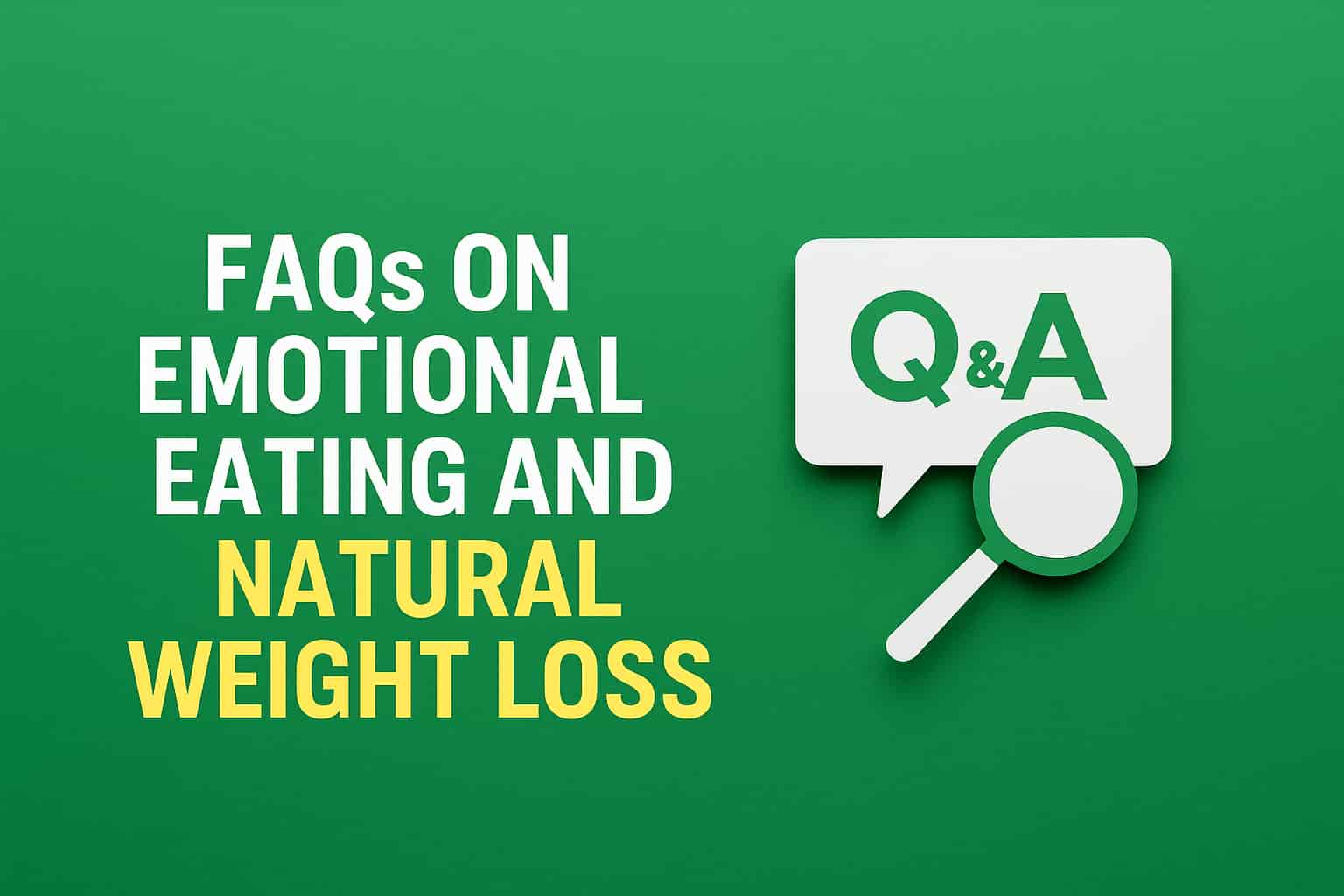

1. How do I know if I’m eating emotionally or physically hungry?
Physical hunger develops gradually and can be satisfied with almost any food. Emotional hunger comes suddenly, often with cravings for specific comfort foods, and usually leaves you feeling guilty afterward.
2. Can emotional eating ever fully stop?
Yes, but it takes practice. By identifying triggers, creating new coping strategies, and building mindful habits, you can reduce and eventually stop emotional eating.
3. Do I need to cut out all my favorite comfort foods?
Not necessarily. The goal is balance, not restriction. You can still enjoy comfort foods in moderation, but they should not be your main response to stress or emotions.
4. How fast can I lose weight once I stop emotional eating?
Weight loss varies depending on diet, activity level, and consistency. Stopping emotional eating removes a major barrier, allowing weight loss to happen more naturally over time.
5. Should I seek professional help for emotional eating?
If emotional eating feels overwhelming or linked to deeper issues like anxiety or depression, consulting a therapist or nutritionist can provide valuable guidance and support.
👉 For further reading, the Harvard Health Publishing guide offers more insights on the connection between emotions and eating habits.
Building a Healthier Relationship with Food
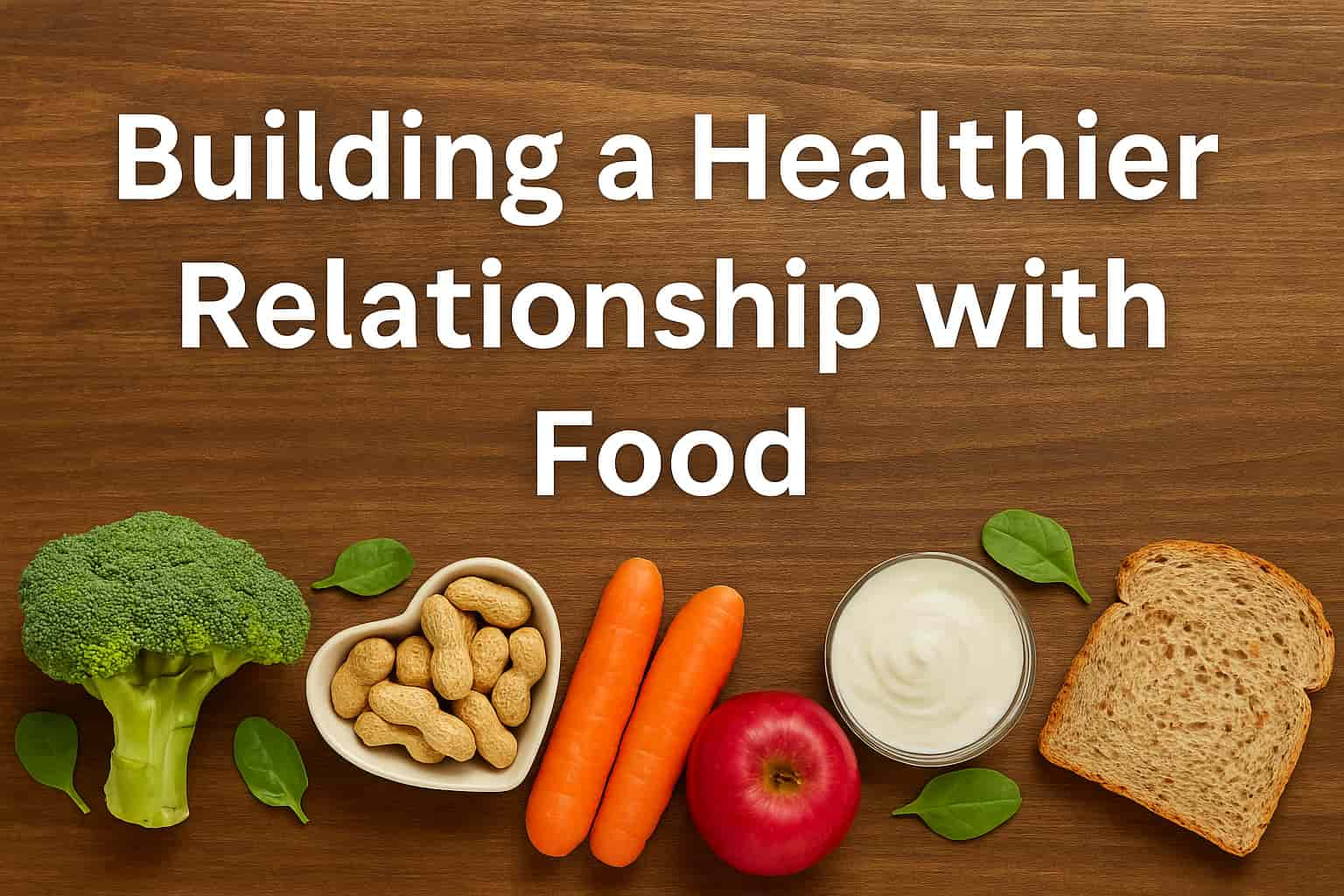

Emotional eating is a challenge many people face, but it doesn’t have to control your life. By understanding the difference between physical and emotional hunger, identifying triggers, and developing healthier coping strategies, you can stop using food as a way to manage emotions.
Natural weight loss comes more easily when eating habits are built on mindfulness, balance, and self-care. Instead of following restrictive diets, focus on nourishing your body with whole foods, staying active, and managing stress in positive ways.
Key takeway How to stop emotional eating and lose weight naturally
Remember, progress takes time. Breaking the cycle of emotional eating is not about perfection it’s about building awareness and making small, consistent changes that last. Each healthy choice, whether it’s choosing water over soda or taking a walk instead of snacking out of stress, strengthens your ability to stay in control.
With patience and persistence, you can create a sustainable lifestyle where food becomes fuel for health and energy, not a way to mask emotions. This shift not only supports weight loss but also leads to greater confidence, resilience, and overall well-being.
👉 For more practical wellness strategies – CoreWellFit.com.

